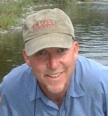Florida State to offer new degrees in computational science, environmental science

A changing world calls for new areas of study, and The Florida State University now has two new unique degree programs for undergraduates, including a degree in computational science that is the first of its kind in Florida and one of only two such programs in the nation.
The Department of Scientific Computing will offer the bachelor's degree in computational science. In addition, the departments of Oceanography, Geological Sciences and Meteorology, which will be merging into a new Department of Earth, Ocean and Atmospheric Science, have joined forces to offer a bachelor's degree in environmental science. The College of Arts and Sciences, where the departments reside, will begin offering the new programs in fall 2010.
"The frontiers of science change constantly," said Joseph Travis, dean of the College of Arts and Sciences. "New areas of study are always emerging, and we have to offer our students opportunities that match these changing frontiers."
Computational science — not to be confused with computer science — is an emerging discipline that provides the tools necessary to solve complex problems using computers, according to Provost and Executive Vice President for Academic Affairs Lawrence G. Abele.
"Future economic development and public policy decisions will rely heavily on computer simulations and design," Abele said. "Having learned computational methods within applications environments, graduates of the proposed program will possess a skill set and knowledge that will complement those of scientists and engineers."

Graduates of the program will be prepared for employment in industry and government laboratories as well as entry into graduate schools, Abele said. The proposed degree program contributes directly to the goals stated in the university's strategic plan for producing students in emerging technologies, including the computational components of mechanical science and manufacturing, natural science and technology, and computer science and information technology.
The Department of Scientific Computing was established in August 2008 when it was elevated from a school within the College of Arts and Sciences that offered only master's and doctoral degrees. The bachelor's degree is an obvious extension of the graduate program, according to department chair and Francis Eppes Professor Max Gunzburger.
The new environmental science degree will focus on quantitative scientific approaches to environmental processes as opposed to policy, which is the domain of an environmental studies program in the College of Social Sciences. This degree will prepare students who would like to work in the interdisciplinary earth sciences, government agencies or nongovernmental organizations, Abele said, adding that many labor market experts predict that environmental industries will be a major source of new jobs in the next decade.

The new Department of Earth, Ocean and Atmospheric Science, which will offer the environmental science degree, is expected to be established this spring. Travis has appointed Geological Sciences Professor Lynn Dudley to serve as chair of the department.
"Climate science is heavily dependent on understanding interactions between the ocean and the atmosphere, and the chemistry of the oceans involves processes on the land, the atmosphere and the water," Travis said. "In this sense, merging the oceanography, geological sciences and meteorology departments reflects the blending of areas of study that has been occurring and will occur even faster in the future. The new degree is going to be very popular with students and fits beautifully with the mission of the new department."
No new funds are needed for the new degree programs, Abele said. Money in the current budget will be reallocated to fund them.
"New areas of study are always emerging, and we have to offer our students opportunities that match these changing frontiers."
Joseph Travis
Dean, Florida State University College of Arts and Sciences
